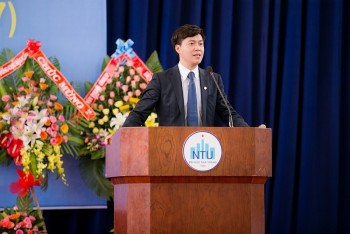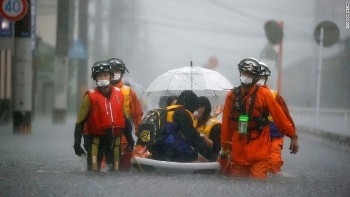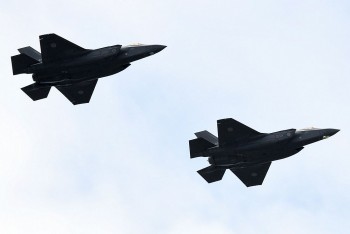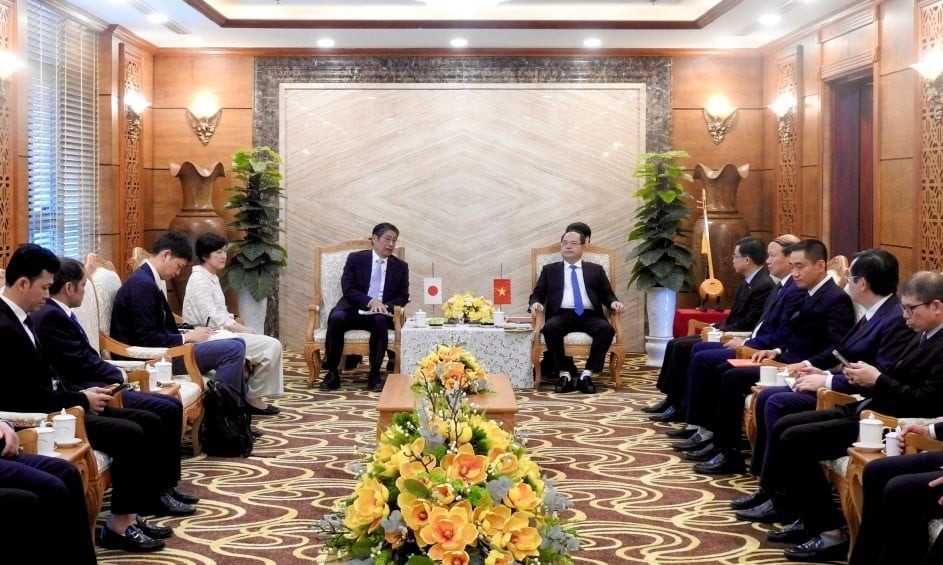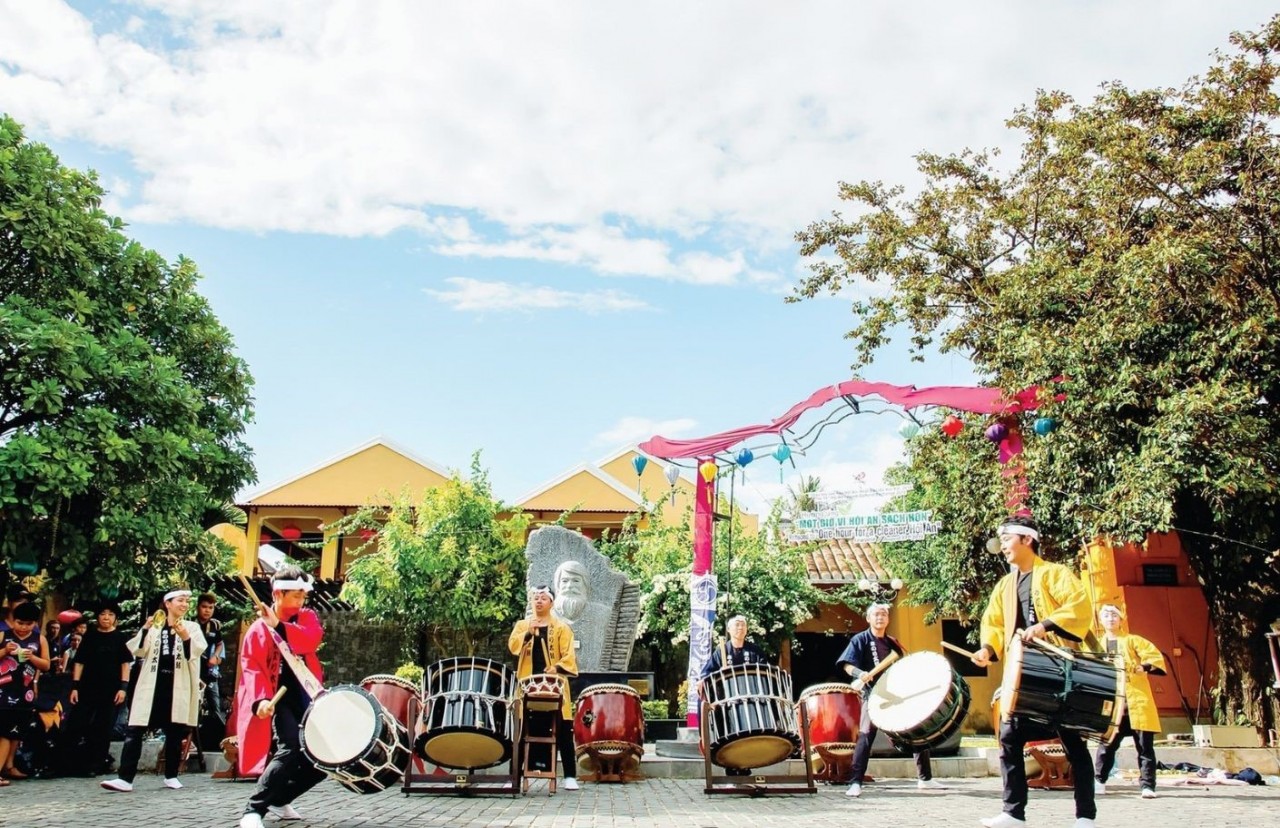Japan Marks 76th Anniversary of WWII Surrender Amid COVID-19 Pandemic
| Vietnamese Man in Japan Preserves Homeland Culture, Language | |
| Million Urged to Seek Shelter as Floods and Landslides Hit Japan | |
| With Eye on China, Japan to Revise Five-Year Defense Plan |
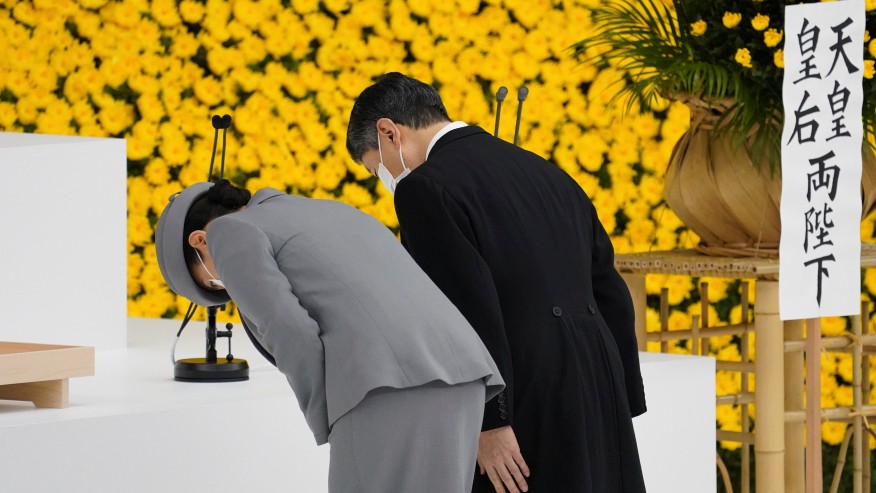 |
| Japan’s Emperor Naruhito, right, and Empress Masako bow during a ceremony to mark the 76th anniversary of Japan’s surrender in World War II at Budokan hall in Tokyo Sunday, Aug. 15, 2021. Photo: AP |
As reported by Kyodo News, in his first address at the ceremony since taking office last year, Prime Minister Yoshihide Suga vowed to help solve the world's problems "under the flag of proactive contributions to peace."
Suga said Japan never forgets that the peace the country enjoys today is built on the sacrifices of those who died in the war.
“We will commit to our pledge to never repeat the tragedy of the war,” he said in his first speech at the event since becoming prime minister.
Suga did not offer an apology to the Asian victims of Japanese aggression across the region in the first half of the 20th century — a precedent set by the country's previous leader, Shinzo Abe, who was frequently accused of trying to whitewash Japan's brutal past.
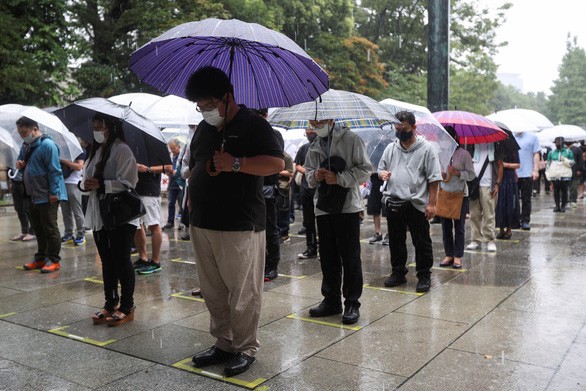 |
| People pay tribute under the rain. Photo: Reuters |
In a largely domestic-focused speech, Suga listed damage inflicted on Japan and its people, including the U.S. atomic attacks on Hiroshima and Nagasaki, the firebombing of Tokyo and other cities and the fierce battle of Okinawa, and mourned for them, according to Abc News.
Abe caused a backlash when he modified his speech to remove any mention of aggression and remorse after he took office in December 2012.
Meanwhile, Emperor Naruhito, attending the ceremony for the third time as emperor, expressed "deep remorse" during the annual memorial service, as he did in previous years.
"Looking back on the long period of postwar peace, reflecting on our past and bearing in mind the feelings of deep remorse, I earnestly hope that the ravages of war will never again be repeated," he said, while also touching on the "unprecedented ordeal" inflicted by the pandemic.
With over 80 percent of the country's population born after the war, including the 61-year-old emperor, relatives of the dead as well as the other attendees mourned the loss of life as they vowed to keep alive the memory of past horrors.
A moment of silence was observed at noon for the approximately 2.3 million military personnel and 800,000 civilians who perished in the war, including those killed in the U.S. atomic bombings of Hiroshima and Nagasaki.
The ceremony was held in Nippon Budokan, with around 185 people attending, the lowest on record since the government started holding the event in 1963, according to the Ministry of Health, Labor and Welfare.
Suga vowed to cooperate with the international community in tackling global issues under “proactive pacifism,” a vision that Abe promoted to allow Japan to play a greater military role in international conflicts.
Beginning 2013, Abe stopped acknowledging Japan’s wartime hostilities or apologize in his Aug. 15 speeches, scrapping a nearly 20-year tradition that began with the 1995 apology of Socialist leader Tomiichi Murayama.
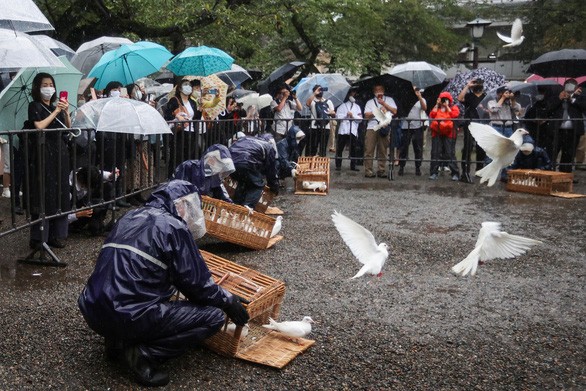 |
| Photo: Reuters |
On Sunday, before attending the ceremony at Tokyo’s Budokan hall, Suga laid flowers at a nearby national cemetery for unknown soldiers. While Suga stayed away from controversial Yasukuni shrine, he did send a religious offering to the shrine, Japanese media reported.
Victims of Japanese actions during the first half of the 20th century, especially the Koreas and China, see the shrine as a symbol of Japanese militarism because it honors convicted war criminals among about 2.5 million war dead.
Abe, who stepped down as prime minister last year, prayed at the shrine Sunday, and so did three other members of Suga’s Cabinet. Two other ministers visited the shrine Friday.
The visits sparked criticism from China and South Korea.
On Sunday, South Korea’s Foreign Ministry in a statement urged Japanese officials to show “sincere remorse through action” so that the countries could develop “future-oriented ties.”
China's Ministry of Foreign Affairs also said they had lodged “stern representations” with the Japanese side in Tokyo and in Beijing over the visits to the Yasukuni shrine, noting Suga's religious offering. Spokeswoman Hua Chunying called on Japan to take actions that would “win the trust” of its neighbors.
With Tokyo and several other areas under a state of emergency, relatives of the war dead in 22 of Japan's 47 prefectures did not attend the memorial service due to a resurgence of COVID-19 cases.
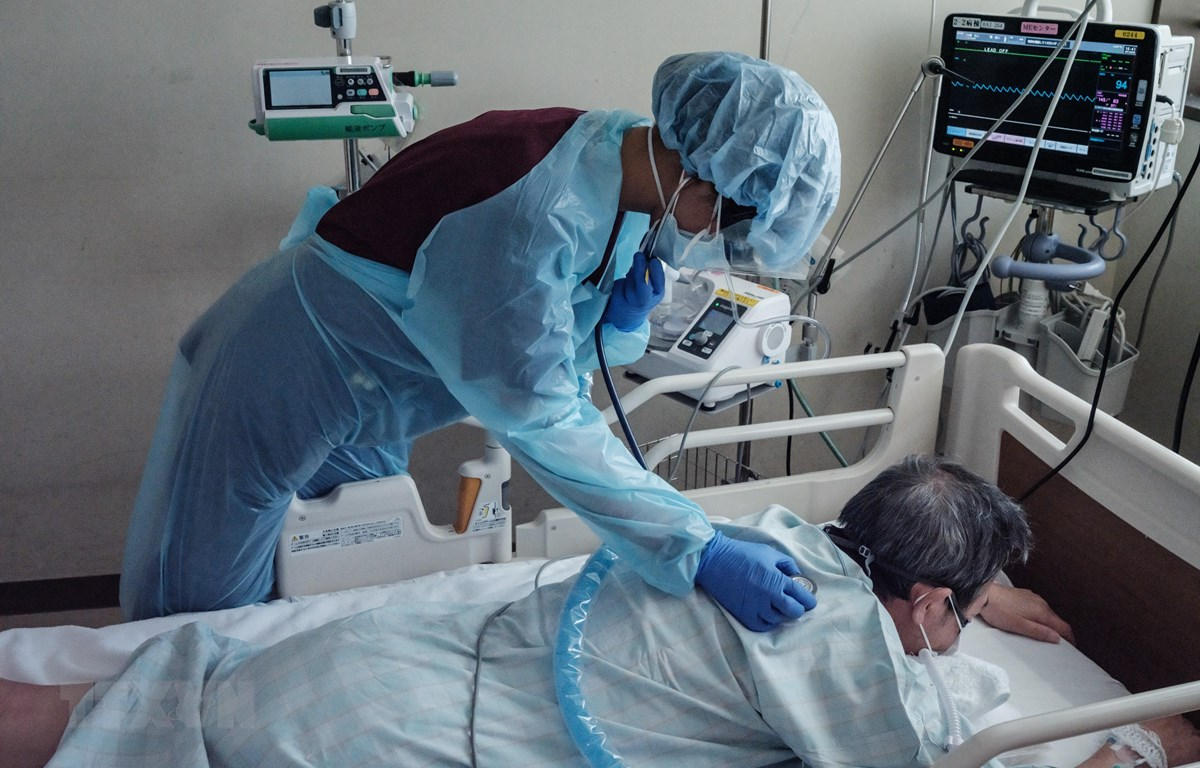 | Covid-19: Japan Reports First Case of Lambda Variant Infection The first case of lambda variant in Japan was a woman in her 30s who arrived from Peru. |
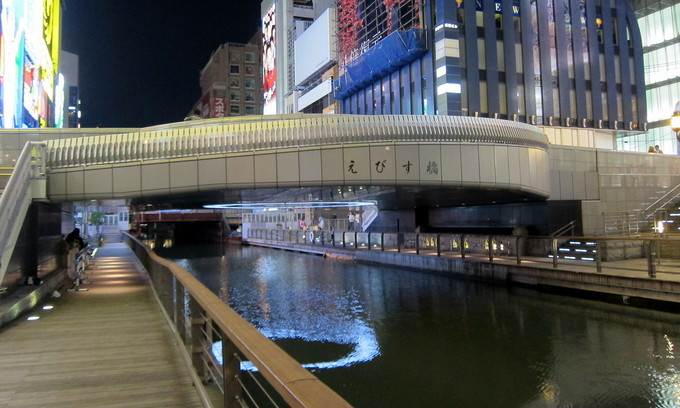 | Vietnamese Man Killed in Osaka: Japanese Police Arrest Suspect A man wanted in connection with the death of a Vietnamese student in Osaka, Japan, was arrested by Japanese police on August 5. |
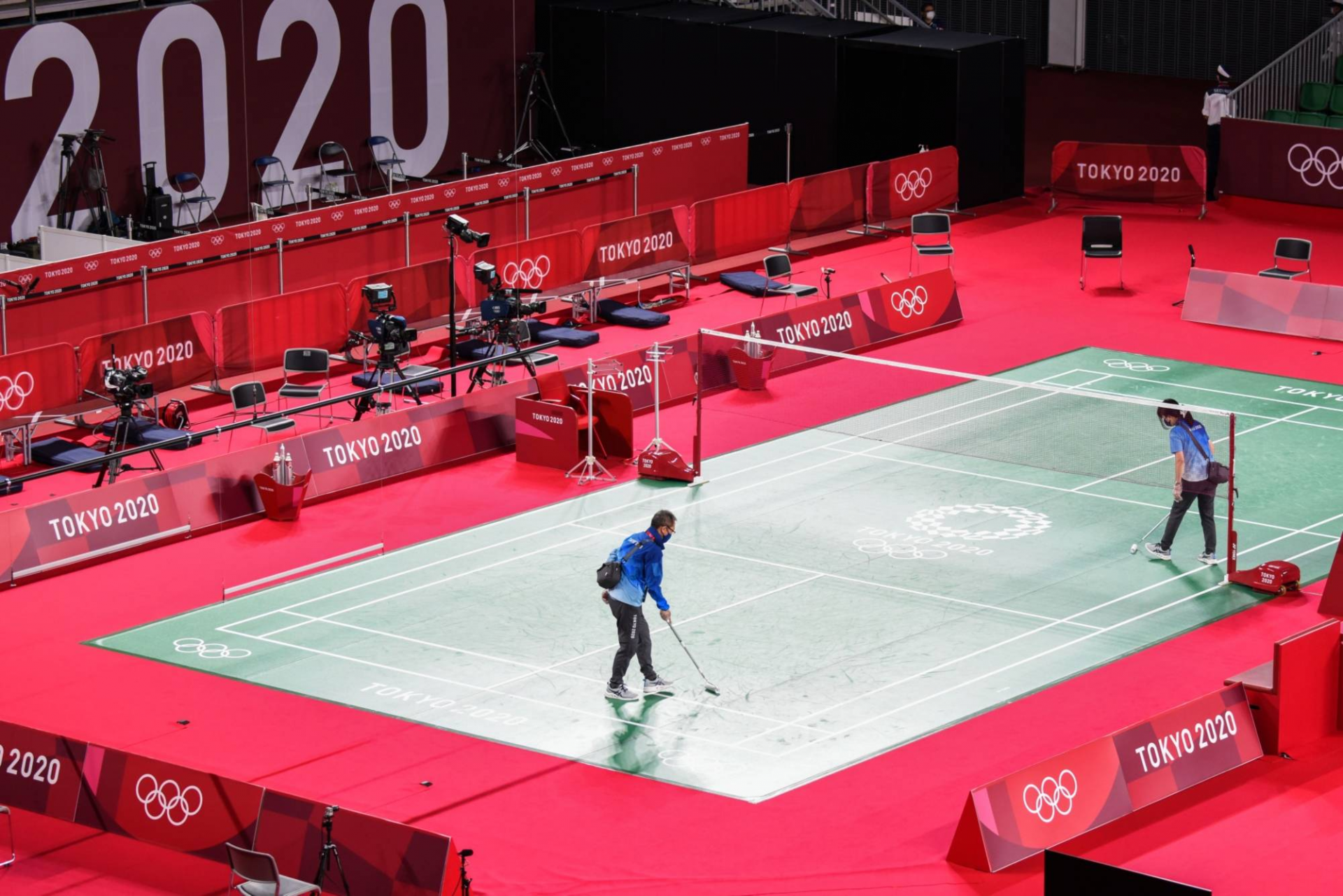 | Covid-19 Overshadows Olympics, Top Japan Medic Urges Nationwide State of Emergency The Tokyo Olympic organisers on August 4 reported 29 more Covid-19 cases associated with the Olympics, the highest daily count, bringing the cumulative total to ... |
Recommended
 World
World
India reports 9 Pakistani Aircraft Destroyed In Operation Sindoor Strikes
 World
World
Thailand Positions Itself As a Global Wellness Destination
 World
World
Indonesia Accelerates Procedures to Join OECD
 World
World
South Korea elects Lee Jae-myung president
 World
World
22nd Shangri-La Dialogue: Japan, Philippines boost defence cooperation
 World
World
Pakistan NCRC report explores emerging child rights issues
 World
World
"India has right to defend herself against terror," says German Foreign Minister, endorses Op Sindoor
 World
World

